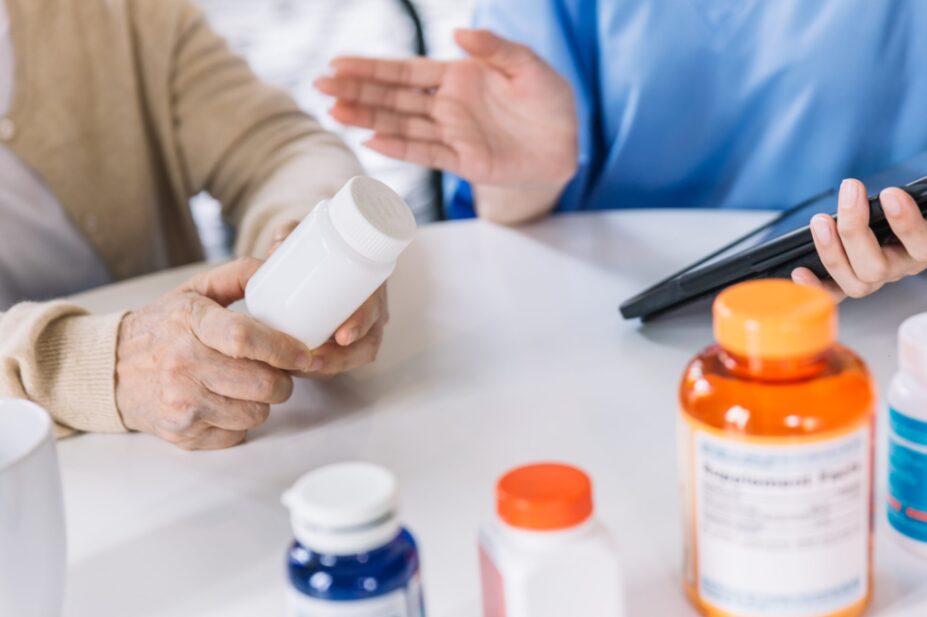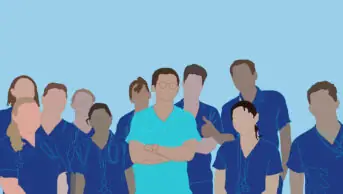
Shutterstock.com
The role of a medicines administration technician (MAT) is becoming increasingly popular in healthcare settings. MATs are pharmacy technicians who are trained to assist with the administration of medicines to patients and to have guided and supportive conversations with them. The role is one that is becoming more important to us at Southern Health NHS Foundation Trust (SHFT) as we continue to strive to improve patient safety and quality of care across our services.
SHFT has been innovative in introducing the MAT role and are one of the few NHS services to have MATs on its staff. We started the service with just two technicians in 2017 and, at the time of writing, are now on our way to having 20 technicians.
The MAT role is one that has been commended by Care Quality Commission (CQC) and we are getting increasingly more interest from other NHS trusts on how they can replicate it to support their own services. At SHFT, MATs work in a variety of hospital settings, including child and adult mental health, older persons mental health, forensics units, physical health settings and rehabilitation units.
The MAT role came about owing to challenges in the recruitment of nurses; but the role is distinct. When the role was first initiated in 2017, data showed us that having a MAT on the ward significantly reduced the number of drug omissions, meaning fewer mistakes with administration, documentation and ordering of medication.
Our research has also showed a 26% reduction in stock expenditure across a six-month period, from when the ward was without a MAT to when they had one. We were also able to show that MATs release a substantial amount of nursing time because they can complete the morning and lunchtime medication rounds, undertake CQC and controlled drug audit checks, and carry out general maintenance in the clinic rooms, such as stock ordering and temperature monitoring.
One of the major benefits of using medicines administration technicians is that they can offer advanced personalised care and advice to inpatient service users
Being involved in the medicines administration process also allows pharmacy technicians to take the lead on ensuring that medicines governance is followed on the wards. By delegating some of these more routine tasks to MATs, pharmacists are able to focus on more complex and specialised aspects of their work, which leads to improved job satisfaction and overall job performance.
At its core, the role of a MAT is to work collaboratively with ward teams to deliver essential care to patients, surrounding medication preparation, distribution and administration. One of the major benefits of using MATs is that they can offer advanced personalised care and advice to inpatient service users, providing counselling with regards to any concerns they may have with their medicines.
The focus on clinical outcomes is achieved with the use of MATs because patients have the opportunity to talk to an expert while their medicines are administered, at least twice a day. Further, this allows nursing staff and the wider team to focus on other daily tasks that may have been pushed aside when they previously had less time to do them.
MATs also help to improve patient safety by ensuring that medicines are administered correctly and on time. We are trained to check medications for accuracy and completeness, and work closely with pharmacists and other members of the healthcare team to identify and resolve any potential issues or concerns advocating care for patients.
In terms of benefits to the wider pharmacy team, MATs can help to increase efficiency and productivity, as well as reduce the risk of medication errors. Within our trust policy, the target completion time for a medicines reconciliation is 48 hours. Data collected prior to MATs working full time on one of the wards showed that only 70% of medicines reconciliations were being completed within this target time, yet after a full-time MAT was placed on the ward, this increased to 100%.
At SHFT, we are always striving to improve our knowledge and skills in ways that help to support the nursing team and the experiences our patients have. We are fortunate to have a new education and training team for our pharmacy department, led by a pharmacist and a pharmacy technician. They are at the forefront of creating training packages, not only for current team members to use to develop their own understanding, but also for technicians who join the team. For those who are comfortable, there is an option to become competent in subcutaneous and intramuscular injection administration to support with giving patients insulin and depots, as well as phlebotomy training to assist when bloods need taking in a timely manner.
We are exploring the benefits of medicines administration technicians in the community as part of the home treatment, crisis and community healthcare teams, to branch out into supporting patients in their own homes.
Overall, the implementation of a MAT programme can have significant benefits for healthcare organisations and their patients. I think it is fair to say that we are the right people, with the correct knowledge and skills to be proactive at expanding the role of pharmacy technicians into new and exciting career opportunities. If this is a role you would be interested in, we are looking to welcome more technicians into our team, so please reach out.
Sarah Blowers, lead medicines administration technician, Southern Health NHS Foundation Trust
You may also be interested in
